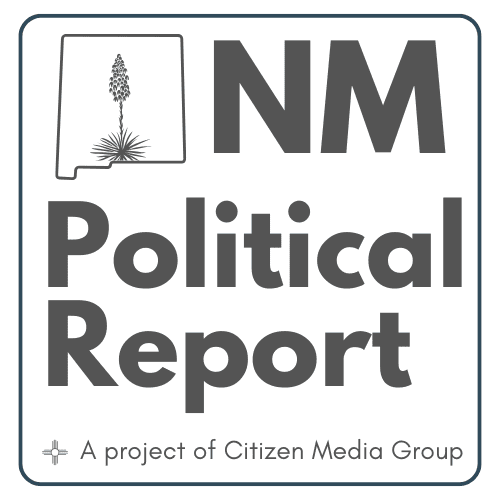A coalition of Indigenous, frontline, youth and environmental organizations, alongside community members, appealed to the New Mexico Supreme Court Tuesday to hear their landmark lawsuit, which challenges the state’s alleged failure to protect public health and the environment from oil and gas pollution, as mandated by the New Mexico Constitution.
The appeal follows a state court of appeals’ dismissal last month of the lawsuit, Atencio v. State of New Mexico.
“By dismissing our suit, the court of appeals attempted to strike our rights to a healthy environment from the constitution,” said Johnny Juarez, a plaintiff and organizer with Youth United for Climate Crisis Action. “The Supreme Court cannot let this decision stand. The future of New Mexico’s youth depends on controlling oil and gas pollution and the constitution mandates just that.”
This first-of-its-kind lawsuit aims to compel the legislature, governor and state agencies to comply with the pollution control clause of the New Mexico Constitution. Article 20, Section 21, requires the state to prevent the “despoilment of air, water and other natural resources” and protect New Mexico’s “beautiful and healthful environment.” Plaintiffs also argue the state has violated the Constitution’s equal protection and fundamental rights clauses.
“This appeal to the Supreme Court is based on the conviction that our constitution and its explicit protections for our health and environment must be upheld,” said Gail Evans, an attorney at the Center for Biological Diversity. “The court of appeals’ unfair dismissal of our lawsuit was based on a severe misreading of the constitution’s pollution control clause and will allow leaders to continue abdicating their duty to protect people from rampant oil and gas pollution. We look forward to making our case on behalf of every New Mexican in front of the Supreme Court.”
According to the Center for Biological Diversity, oil production in New Mexico has increased more than 10-fold since 2010, leading to significant air, water and climate pollution in the San Juan Basin (part of the culturally important Greater Chaco Landscape) and the Permian Basin. Despite this surge and the constitutional duty to control pollution, decades-old exemptions leave the oil and gas industry largely unregulated environmentally.
“Oil and gas pollution destroy more sacred land across the Greater Chaco Landscape each year. My family’s land has been contaminated, and the health of my community is threatened by spills of toxic liquid waste and air pollution from fossil fuel infrastructure,” said Mario Atencio, a plaintiff in the case from Eastern Navajo Agency. “The legislature has shown time and again that it values the fossil fuel industry over its obligation to protect our environmental health and heritage. This is the Supreme Court’s chance to ensure that our constitution has meaning.”
As New Mexico faces increased aridification due to climate change, oil companies utilize vast amounts of the state’s dwindling fresh water resources for fracking. In 2019 alone, the industry used approximately 14 billion gallons of fresh water, equivalent to the household use of over 278,000 people.
“New Mexico has long suffered from a history of sacrificing communities, land and water for the benefit of extractive industries,” said Julia Bernal, a plaintiff and executive director of Pueblo Action Alliance. “Unfortunately, that history is still a current reality. Oil and gas pollution continues to harm our communities, poison our water and air, and threaten our sacred places. The state has a constitutional obligation to control pollution and we’re calling on our highest court to uphold that duty.”
This constitutional lawsuit carries far-reaching implications. As the second-largest oil-producing state in the country and a leading gas producer, New Mexico is responsible for over 50% more greenhouse gas emissions than the national average. Pollution from the state’s oil and gas industry significantly contributes to the climate crisis, threatening the plaintiffs’ right to a livable future.
The case was brought by Indigenous Lifeways, Pueblo Action Alliance, Youth United for Climate Crisis Action, Center for Biological Diversity, WildEarth Guardians, and individuals living on the frontlines of oil and gas extraction.
Related
(Except for the headline, this story has not been edited by PostX News and is published from a syndicated feed.)

